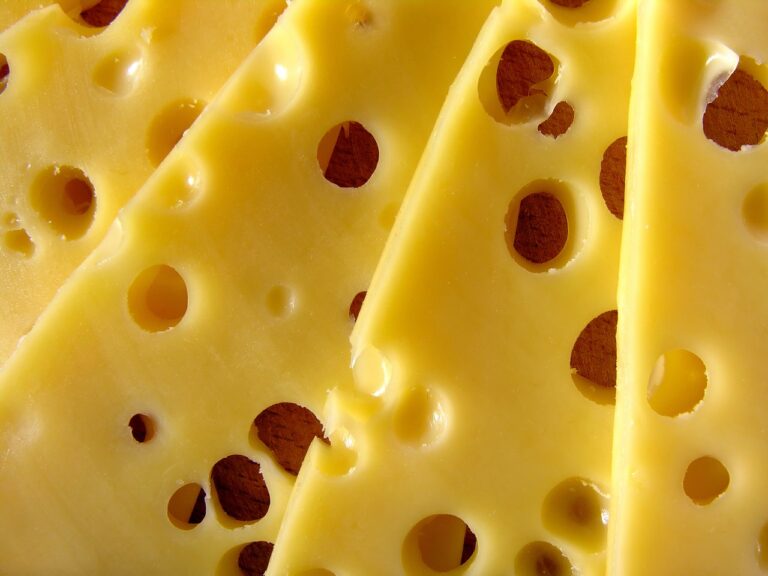Why Am I Craving Desserts?

Craving dessert is a common experience that many people encounter, often at the end of a meal or during late-night hours. This yearning for something sweet can be influenced by various factors, from physiological needs to psychological desires. Understanding the reasons behind these cravings can help individuals manage their dietary choices better and maintain a balanced relationship with food.
Why Am I Craving Dessert?
1. Biological Drive for Sugar
Our bodies naturally crave sugar due to its role as a quick source of energy. Glucose, a simple sugar, is vital for brain function and physical activity. When blood sugar levels drop, the body signals the brain to seek out sugary foods to restore balance. This biological drive ensures we have the necessary energy to perform daily tasks and maintain cognitive functions.
Additionally, during times of stress or fatigue, the body may crave sugary foods as a quick way to boost energy levels. This is because sugar triggers the release of serotonin, a neurotransmitter that contributes to feelings of well-being and happiness. Hence, a dessert craving can be a natural response to low energy or mood dips.
2. Psychological Comfort
Desserts often provide psychological comfort and can be linked to emotional well-being. Comfort foods, including desserts, are typically associated with positive memories, such as family gatherings, celebrations, or special occasions. These associations can lead to cravings when we seek emotional reassurance or want to relive happy moments.
Moreover, eating sweet treats can release dopamine, the “feel-good” hormone, in the brain, creating a pleasurable experience. This biochemical response can make desserts particularly appealing when one is feeling down or stressed, as they offer a temporary mood lift and a sense of satisfaction.
3. Habitual Patterns
Many people develop a habit of ending their meals with dessert. This routine can be ingrained from childhood or become a part of cultural or familial traditions. Over time, the expectation of a sweet finish becomes a habitual pattern that triggers cravings regardless of actual hunger or nutritional need.
Breaking this habit can be challenging, as it often involves changing long-established routines and finding new ways to signal the end of a meal. Mindful eating practices and gradually reducing dessert portions can help in reshaping these habits without feeling deprived.
4. Social Influences
Social settings can strongly influence dessert cravings. Celebrations, gatherings, and parties often feature an array of desserts, making them hard to resist. The social pressure to partake in communal eating can lead to increased consumption of sweets, even if one does not initially crave them.
Furthermore, seeing others enjoy desserts can trigger a craving through social cues and visual appeal. The sight and smell of desserts can activate the brain’s reward system, making it difficult to say no in a social context, especially when desserts are shared and enjoyed together.
5. Advertising and Marketing
The powerful influence of advertising and marketing cannot be underestimated. Desserts are often portrayed in media and advertisements as irresistible and essential parts of indulgence and enjoyment. This constant exposure can create subconscious cravings and increase the desire for sweet treats.
Advertisements often highlight the sensory appeal of desserts, using visuals of gooey, rich, and beautifully presented sweets to entice consumers. This can lead to heightened cravings, as the brain responds to these stimuli by anticipating the pleasure of consuming the advertised product.
6. Nutrient Deficiencies
Sometimes, cravings for dessert can be linked to nutrient deficiencies. A lack of certain nutrients, such as magnesium, can lead to increased cravings for chocolate, which is rich in this mineral. Similarly, low levels of chromium, tryptophan, or iron can also trigger a desire for sweets as the body seeks to balance its nutritional needs.
Addressing these deficiencies through a balanced diet and possibly supplements can reduce cravings. Ensuring adequate intake of vitamins and minerals helps maintain overall health and reduces the likelihood of nutrient-driven dessert cravings.
7. Hormonal Changes
Hormonal fluctuations, especially in women, can lead to intense cravings for sweets. Phases of the menstrual cycle, pregnancy, and menopause can all influence hormone levels, which in turn affect appetite and food preferences. During these times, increased levels of hormones like progesterone can heighten the desire for high-carbohydrate and sugary foods.
Men can also experience hormonal changes that impact cravings. For example, stress-induced cortisol can increase appetite and craving for comfort foods, including desserts. Understanding the hormonal basis of these cravings can help in managing them through balanced nutrition and stress management techniques.
8. Emotional Eating
Emotional eating is a significant factor behind dessert cravings. People often turn to sweet treats as a way to cope with negative emotions such as stress, sadness, or boredom. Desserts provide a temporary escape and a quick way to elevate mood, albeit briefly.
Recognizing emotional eating patterns is crucial in addressing these cravings. Developing alternative coping strategies, such as exercise, meditation, or engaging in hobbies, can provide healthier ways to manage emotions without relying on sweets for comfort.
9. Lack of Protein and Fiber
A diet low in protein and fiber can lead to increased cravings for sweets. Protein and fiber help maintain satiety and regulate blood sugar levels, reducing the likelihood of sudden hunger and subsequent sugar cravings. When meals lack these essential nutrients, the body may seek out quick energy sources, often in the form of sugary snacks or desserts.
Incorporating more protein and fiber-rich foods, such as lean meats, legumes, vegetables, and whole grains, can help stabilize blood sugar levels and reduce the frequency and intensity of dessert cravings. This dietary adjustment promotes long-term satisfaction and balanced energy levels.
10. Reward System
The concept of rewarding oneself with dessert is deeply ingrained in many cultures. Achieving a goal, completing a task, or simply making it through a tough day can be occasions where individuals reward themselves with a sweet treat. This reward system reinforces the connection between accomplishments and dessert consumption.
While rewarding oneself is not inherently negative, it’s essential to find a balance and ensure that such rewards do not become the primary means of managing stress or celebrating achievements. Exploring other forms of rewards, like a relaxing activity or a non-food-related treat, can help in diversifying the ways we celebrate success and cope with challenges.
In conclusion, craving dessert is a multifaceted phenomenon influenced by biological, psychological, social, and cultural factors. By understanding the underlying reasons for these cravings, individuals can develop strategies to manage them more effectively and maintain a balanced diet and lifestyle.






